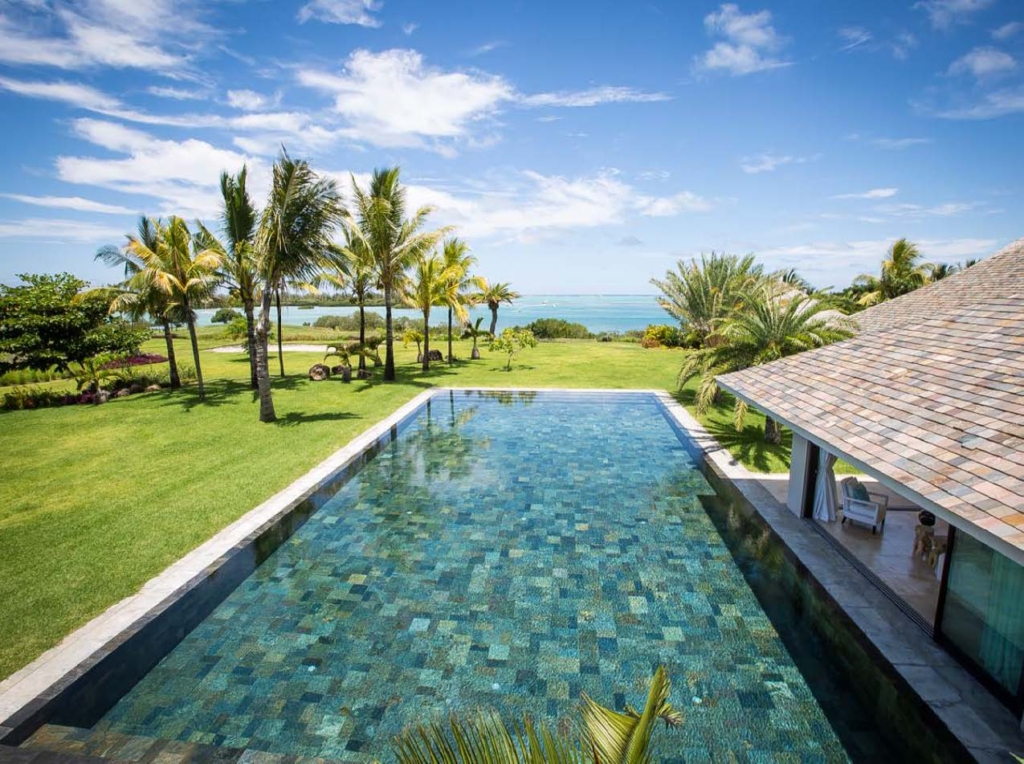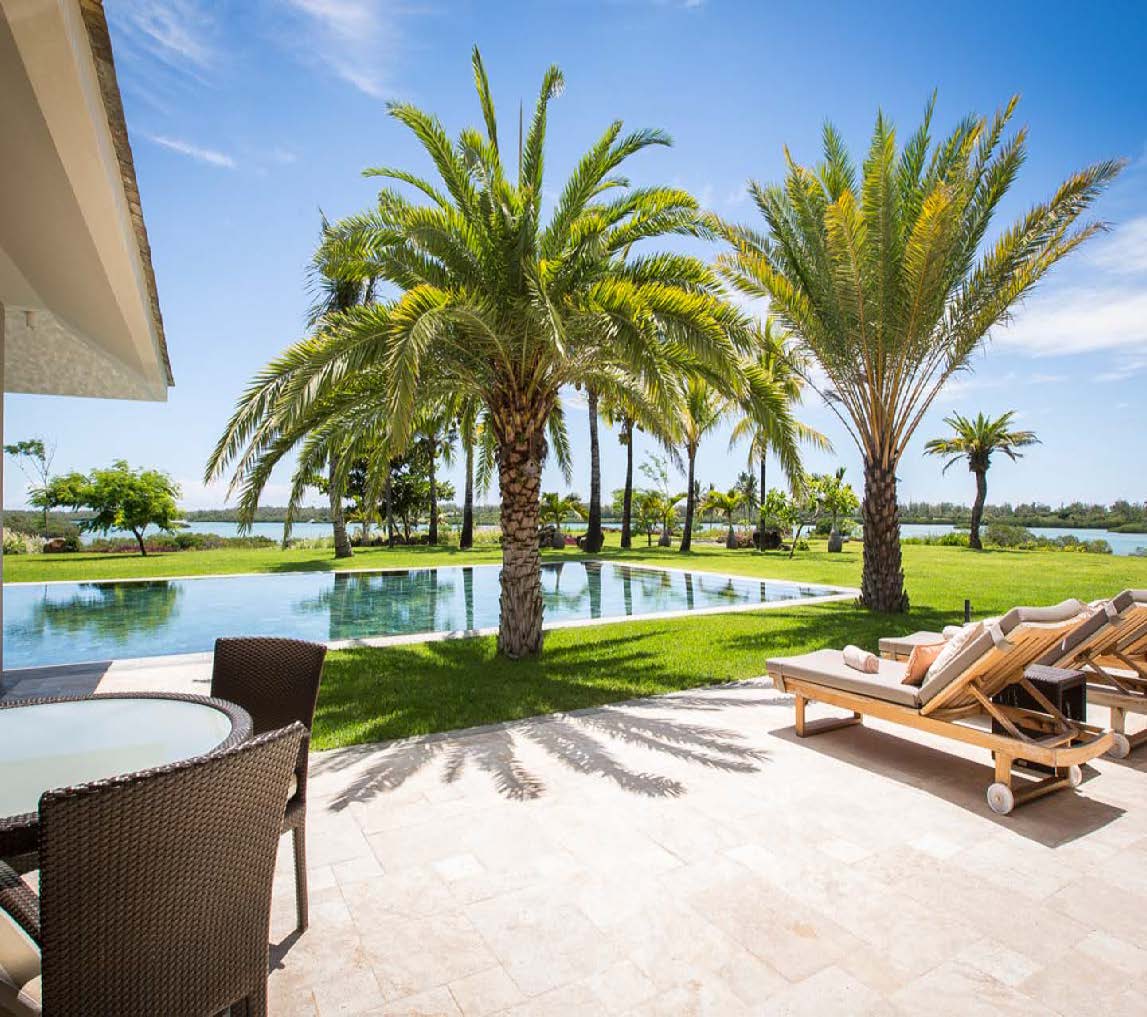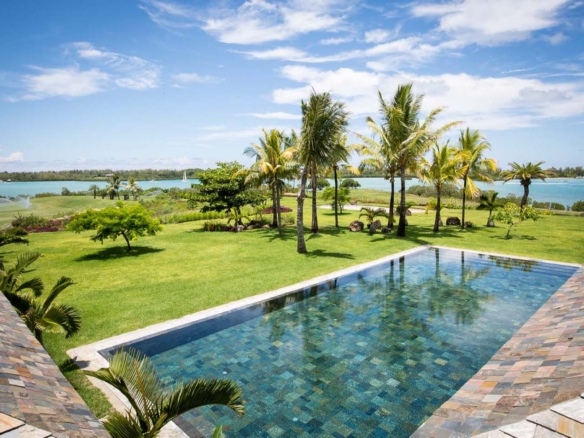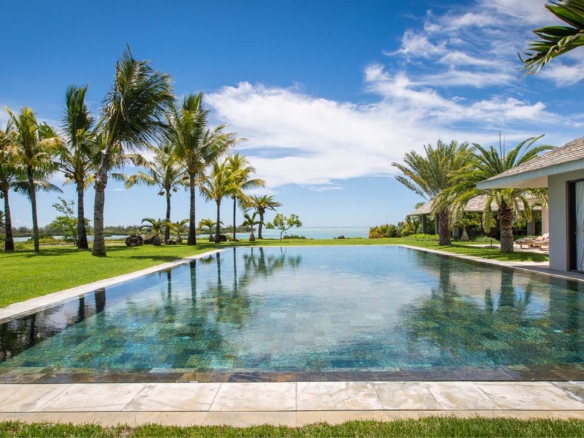In Mauritius, a new generation of properties is redefining the codes of luxury. Far from the superfluous, true refinement is now expressed in respect for nature, quality of life and architectural intelligence. In 2025, eco-responsible residences are no longer a marginal trend. They have become a criterion of choice for a wealthy and demanding clientele.
In a region where the environment is an asset, investing in a property that respects it is seen as a matter of course. Integrated landscaping, energy efficiency and resource autonomy are all values that are gaining ground in the high-end market. For international buyers, it’s no longer just about owning a villa in Mauritius, but about living in harmony with the place.
Noble, durable materials for timeless architecture
Upscale residences with an ecological vocation favor local, natural, raw materials. Volcanic stone, responsibly sourced tropical woods, green roofs and breathable walls: everything is designed to last, breathe and age gracefully.
Architecture is purified. It blends into its environment. It allows light to circulate, breezes to cross, views to open out onto the lagoon or the mountains, without ever distorting them. Every detail contributes to a sober, sophisticated aesthetic, yet discreetly committed.
Solar energy, natural ventilation and rational self-sufficiency
The notion of comfort is evolving. It is no longer measured solely in terms of equipment or surface area, but also in terms of energy performance. New luxury residences are equipped with photovoltaic panels, rainwater recovery systems and passive ventilation solutions, avoiding heavy air conditioning.
These properties offer a modern quality of life, without compromising on well-being or technology. On the contrary, they emphasize intelligent design, fluidity of use and discreet installations.

Global demand for conscious luxury
The international high-end clientele is changing. They travel more, but want to consume less. They own several residences, but now prefer those that respect the environment, without sacrificing elegance or functionality.
In Mauritius, this change in mentality is reflected in the rise of eco-designed projects, often driven by committed architects, visionary developers and agencies like Ohana Heritage, specializing in ultra-selective properties.
Conclusion
Sustainable luxury is not a fad: it’s a profound transformation of the real estate market in Mauritius. Today, to acquire an eco-responsible property is to choose a lifestyle, a lasting asset value, and a form of enlightened demand. It means being part of a new generation of investors who know that true prestige is as discreet as it is intelligent.
At Ohana Heritage, we follow this evolution with precision, selecting rare properties that combine design, performance and environmental awareness.





